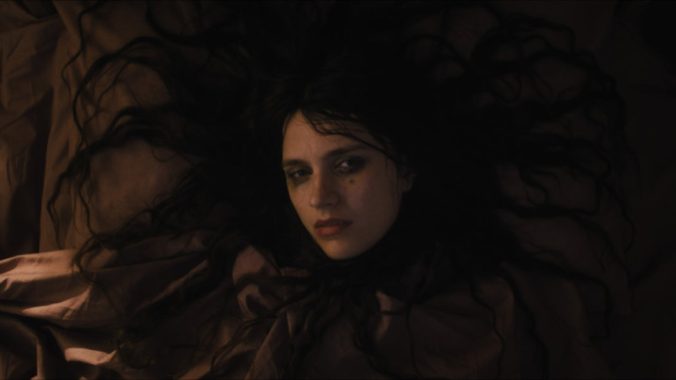The First Omen Goes Harder than a Prequel Has Any Right To

My eyes glazed and rolled up into my head back whenever it was that I had learned that, nearly two decades after the poorly-received The Omen remake starring Julia Stiles and Liev Schreiber, 20th Century Studios via the Walt Disney Corporation was churning out a prequel film for the mixed-bag yet lucrative horror franchise. The First Omen purported to chart the origins of the child Damien, the son of Lucifer who originally fell into the well-meaning laps of American diplomat Robert Thorn (Gregory Peck) and his wife Kathy (Lee Remick); parents who, in Richard Donner’s 1976 film, are surreptitiously told that they lost their own baby during childbirth. During the months leading up to its premiere, when trailers for The First Omen preceded new releases I went to see in theaters, I dismissed them and looked at my phone the entire time that they played. Unless it’s something like the Evil Dead franchise, I generally don’t give horror sequels or prequels a passing thought other than “obvious insta-garbage.” How wrong I was about The First Omen, the feature debut of writer/director Arkasha Stevenson.
After watching The First Omen, I was unsurprised to learn that Stevenson had helmed the entire superb third season of the underappreciated horror anthology series Channel Zero, which aired under the title “Butcher’s Block” back in 2018 on SYFY. Channel Zero remains an unparalleled work of modern horror filmmaking and storytelling—especially now, when American horror films are at the worst they’ve ever been. To learn that the director of The First Omen not only had her hands in the series but directed its second-best season did not come as a shock. Her film immediately struck me not as a franchise cash-in, but as the work of someone who deeply understands what makes good horror tick and who made this installment almost completely their own. The small handful of Marvel-esque Easter eggs are entirely negligible for how well the film succeeds at being an affecting and stomach-churning work of modern horror.
The First Omen kicks off with a queasy conversation between two English priests, Father Harris (Charles Dance) and Father Brennan (Ralph Ineson), over the conception of an unknown cursed child, a girl (Damien is a boy, yes—but I’ll keep this review spoiler-free) whose birth will bring forth an all-powerful evil. Kept elusive and told via a collage of disturbing yet striking images, we leave this scene and cut to the arrival of a young American nun-to-be named Margaret (Nell Tiger Free). Margaret is nervous and chaste, while bright-eyed and bushy-tailed, and she touches down in 1971 Rome amid the backdrop of civil rights protests. Nevertheless, she is welcomed by the elder nuns of her new home, Vizzardeli Orphanage, where she will soon take her vows and commit the rest of her life to serving God. She befriends her new roommate, the free-spirited Luz (Maria Caballero), who is determined to use her remaining days of secular freedom spent as the hedonistic young woman she still is. One night, Luz gets a reluctant Margaret all gussied up and drags her to a disco, where Margaret meets a nice Italian boy with whom she shares an intimate moment. The next day, she wakes up in a puddle of her own sweat, the memory of the previous night already erased; Luz assures her that she got Margaret home safely.
The disco night remains Margaret’s only moment of weakness, and she returns steadfastly to her work at Vizzardeli. There, she takes a particular interest in outcast teen Carlita (Nicole Sorace), who becomes very obviously (too obviously, some might say) the most ideal candidate for Lucifer’s child. An off-putting girl with Samara-from-The-Ring stringy black hair, she’d been placed in a separate room for assaulting another child and biting a nun. But Margaret feels only empathy for Carlita, as the two share a similar upbringing: Unruly, misbehaved children who grew up in orphanages and experienced strange, dark delusions. Margaret explains to Carlita how, with help from the nuns and priest at her own orphanage, she came to understand that the visions were all in her mind and thus offers comfort and hope for her new friend. But a grave encounter with Father Brennan portends impending doom surrounding Carlita, and Margaret begins to see and experience strange, diabolical things: Like the self-immolating suicide of a young nun (Ishtar Currie Wilson) who jumps from a ledge and proclaims, familiarly, “It’s all for you!” as Carlita, Margaret, the nuns, and the children look on in horror.
-

-

-

-

-

-

-

-

-

-

-

-

-

-

-

-

-

-

-

-

-

-

-

-

-

-

-

-

-

-

-

-

-

-

-

-

-

-

-

-








































